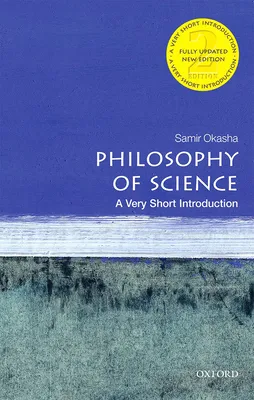Home
Philosophy of Science: An Introduction to the Central Issues
Loading Inventory...
Barnes and Noble
Philosophy of Science: An Introduction to the Central Issues
Current price: $180.00


Barnes and Noble
Philosophy of Science: An Introduction to the Central Issues
Current price: $180.00
Loading Inventory...
Size: Hardcover
*Product Information may vary - to confirm product availability, pricing, and additional information please contact Barnes and Noble
The book is a translation of the second edition of a much-used and research-based Chinese textbook. As a succinct and issue-based introduction to the Western philosophy of science, the book brings eight focal issues in the field to the fore and augments each topic by incorporating Chinese perspectives.
Followed by an overview of the historical framework and logical underpinnings of the philosophy of science, the book thoroughly discusses eight issues in the discipline: (1) the criteria of cognitive meaning, (2) induction and confirmation, (3) scientific explanation, (4) theories of scientific growth, (5) the demarcation between science and pseudoscience, (6) scientific realism and empiricism; (7) the philosophy of scientific experimentation, (8) science and value. Not confined to Western mainstream discourse in this field, the book also introduces voices of Chinese philosophers of note and adopts a stance that productively combines logical empiricism and Kuhnianism, both of which tend to be covered in less detail by many English language textbooks. In the final chapter the author offers a prognosis regarding the future of the discipline based on recent trends.
This book will be of value to students who study philosophy of science and hope to gain a better understanding of science and technology.
Followed by an overview of the historical framework and logical underpinnings of the philosophy of science, the book thoroughly discusses eight issues in the discipline: (1) the criteria of cognitive meaning, (2) induction and confirmation, (3) scientific explanation, (4) theories of scientific growth, (5) the demarcation between science and pseudoscience, (6) scientific realism and empiricism; (7) the philosophy of scientific experimentation, (8) science and value. Not confined to Western mainstream discourse in this field, the book also introduces voices of Chinese philosophers of note and adopts a stance that productively combines logical empiricism and Kuhnianism, both of which tend to be covered in less detail by many English language textbooks. In the final chapter the author offers a prognosis regarding the future of the discipline based on recent trends.
This book will be of value to students who study philosophy of science and hope to gain a better understanding of science and technology.


















